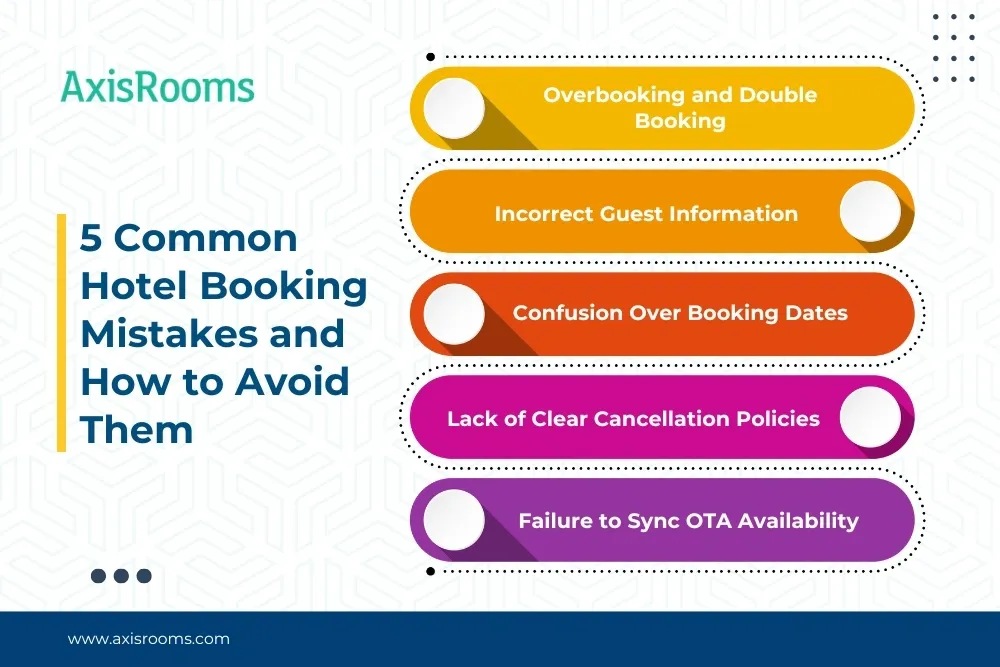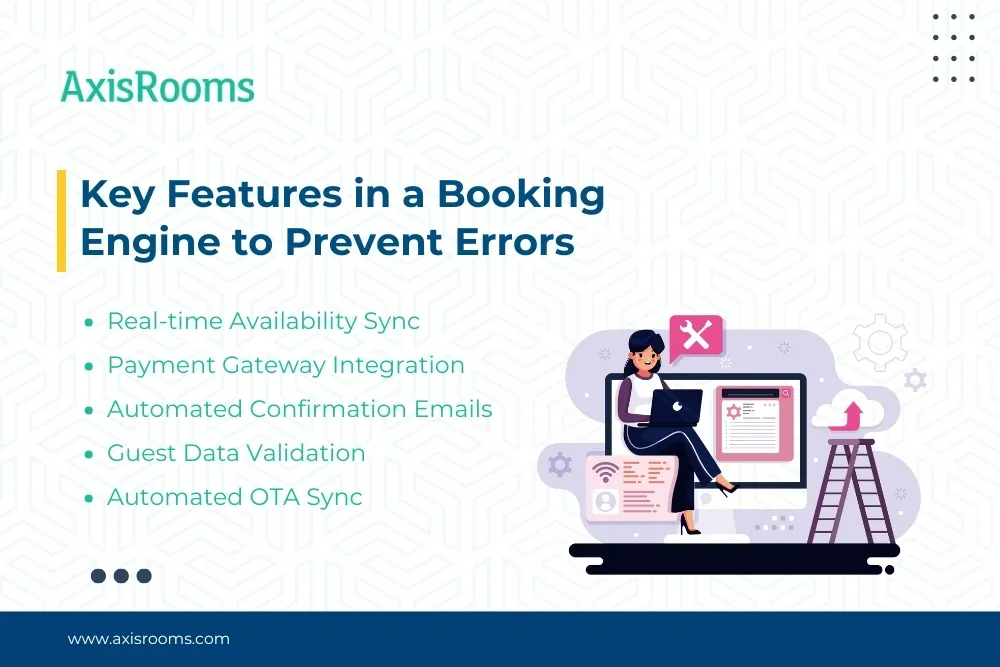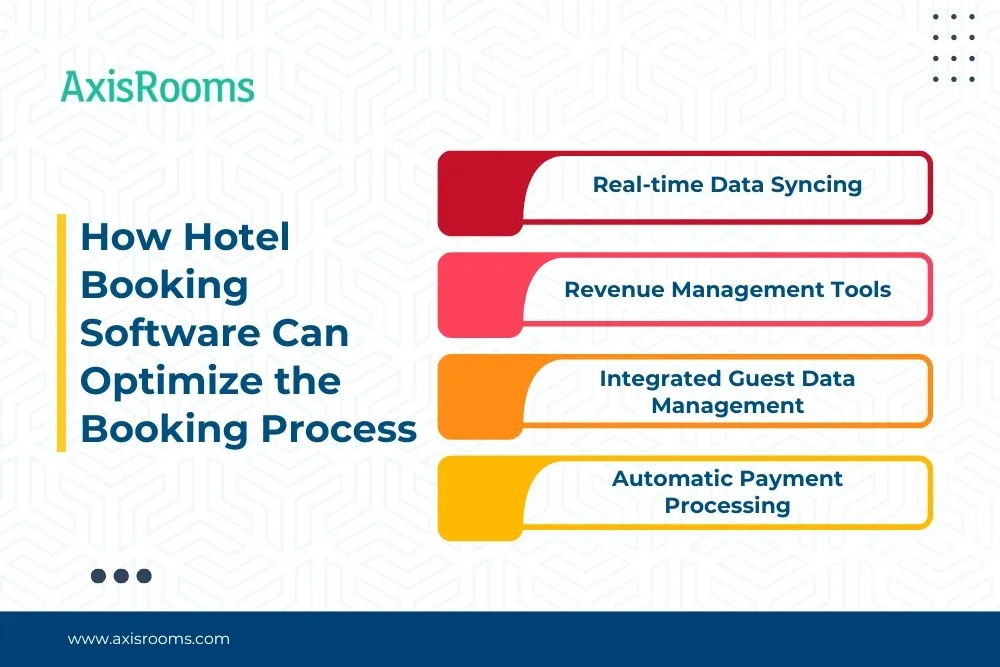For hoteliers, booking mistakes can be very costly. They not only lead to lost revenue, but also harm your guest satisfaction and the hotel’s reputation. From overbookings to incorrect guest information, these mistakes can be avoided with the right strategies and tools. In this guide, we will go over the most common hotel booking mistakes and show you how to fix them using tools like hotel booking engines, channel managers, and PMS systems to make your booking process smoother.
Why Booking Mistakes Matter
Booking errors are not only frustrating but also expensive for your hotel. Whether it’s missing a guest’s details or selling a room that’s already taken, these mistakes cause problems with your guests and your revenue. Hoteliers can avoid these issues by using the right technology. By streamlining the hotel booking process, you can increase revenue and improve guest experience. If you have a good revenue management strategy, you can prevent these mistakes and help your hotel run more smoothly.
5 Common Hotel Booking Mistakes and How to Avoid Them

1. Overbooking and Double Booking
Overbooking happens when more rooms are sold than are available. This is a common mistake that can cause disappointment and upset guests. Double booking happens when two different guests are booked into the same room at the same time.
How to Prevent:
- Connect your PMS with a channel manager that updates room availability in real-time across all platforms.
- Set limits on how many rooms can be sold during busy times to avoid overbooking.
2. Incorrect Guest Information
When guest details like names, contact numbers, or emails are wrong, it can lead to confusion and missed communication.
How to Prevent:
- Use a system that automatically checks guest details and confirms them before the booking is finalized.
- Encourage guests to double-check their details before submitting their booking.
3. Confusion Over Booking Dates
Guests can often make mistakes when choosing check-in or check-out dates. This can lead to missed reservations or incorrect dates.
How to Prevent:
- Use a calendar-style booking system where guests can easily select the right dates.
- Send automated booking confirmation emails that clearly state the check-in and check-out details.
4. Lack of Clear Cancellation Policies
If guests don’t understand the cancellation policy, it can lead to misunderstandings or complaints.
How to Prevent:
- Make sure your cancellation policy is clear and visible at every stage of the booking process.
- Send a policy reminder with each booking confirmation.
5. Failure to Sync OTA Availability
Not syncing your availability across your OTAs and direct booking channels can lead to overbookings or missed bookings.
How to Prevent:
- Use a booking engine that syncs availability across OTAs and your hotel’s website.
- Automate availability updates across all channels to avoid errors.
Key Features in a Booking Engine to Prevent Errors

The right hotel booking engine can help prevent errors and improve efficiency. Look for features that make it easier to manage bookings and reduce mistakes:
Double Booking Prevention: Best Practices
Preventing double bookings is essential for smooth hotel operations. By following these best practices, you can avoid booking errors and improve the guest experience.
How Hotel Booking Software Can Optimize the Booking Process

Real-Life Examples of Hotel Reservation Mistakes and Solutions
Example 1: A hotel faced frequent overbookings during the high season. By integrating a PMS system with real-time OTA sync, they were able to synchronize availability across all platforms and prevent double bookings.
Example 2: Another hotel struggled with incorrect guest details entered during manual booking. They implemented a guest data management system, which automatically updated and validated guest information, reducing errors and improving guest communication.
Conclusion: Implementing Strategies for a Seamless Booking Experience
To prevent common hotel booking mistakes, hoteliers must adopt advanced booking technologies such as integrated booking engines, PMS systems, and channel managers. These tools help streamline the booking process, reduce errors, and enhance the guest experience, leading to increased revenue and customer satisfaction. By following best practices like automating availability syncing, setting booking limits, and ensuring clear communication, hoteliers can avoid costly booking mistakes and boost direct bookings.


